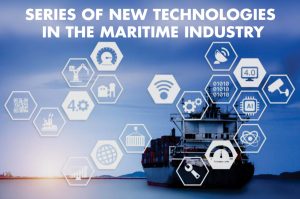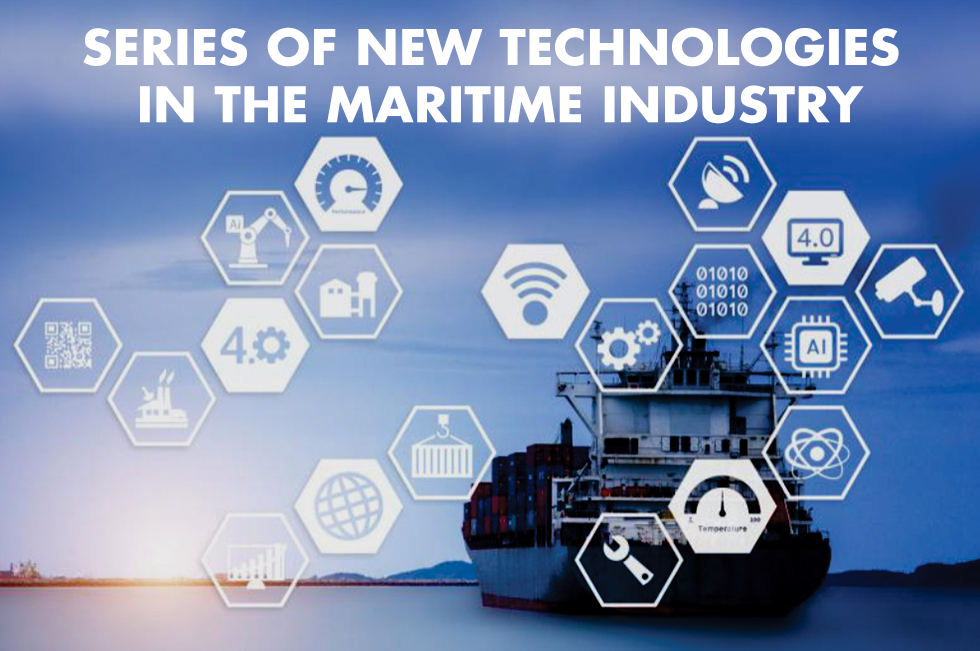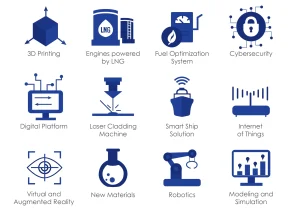Technological advancements are transforming the maritime industry by enhancing operational efficiency, reducing environmental impact, and reshaping global shipping. From autonomous vessels and smart ports to blockchain-powered logistics and eco-friendly fuels, these innovations are driving sustainability and competitiveness. This article explores key maritime technologies, emerging trends, and sustainable practices supported by credible industry research.
Emerging Technologies in Maritime Operations
The adoption of advanced technologies has revolutionized maritime logistics, enhancing how ships operate, cargo is managed, and ports function.
Autonomous Ships : Autonomous ships, officially termed Maritime Autonomous Surface Ships (MASS), are equipped with cutting-edge navigation systems, AI-based controls, and advanced sensors. Research published by the International Maritime Organization (IMO, 2023) highlights the efficiency and reduced operational costs of autonomous vessels. The Norwegian ship Yara Birkeland, operational since 2022, exemplifies this innovation, navigating using AI-driven systems with minimal human intervention (DNV, 2022).
Smart Ports : Smart ports integrate digital technologies such as the Internet of Things (IoT), big data analytics, and blockchain to streamline cargo handling and improve security. According to a study by the World Bank (2021), the Port of Rotterdam’s digital twin platform has improved cargo flow and efficiency through real-time data-driven simulations.
Blockchain-Enabled Logistics : Blockchain technology enhances transparency, security, and efficiency in maritime logistics. Maersk’s TradeLens platform, highlighted in a 2022 report by Lloyd’s Register, demonstrates how blockchain digitizes shipping documentation, reducing administrative delays and enhancing supply chain transparency.

Industry Trends Shaping Maritime Logistics
Technological advancements are driving significant industry trends that reshape global maritime practices.
Digitalization and Automation : Automation is critical to modern maritime operations. A report by BIMCO (2023) indicates that automated ship operations, AI-powered maintenance systems, and predictive analytics reduce human error and operational downtime.
Green Shipping and Decarbonization : The maritime sector’s shift toward sustainability is driven by regulatory frameworks like IMO’s 2020 Sulphur Cap. A study published in the Journal of Marine Science and Technology (2023) highlights the increasing adoption of LNG-powered ships and the development of hydrogen and ammonia-based fuels as industry game changers.
Cybersecurity in Maritime Operations : Digitalization has also brought cybersecurity challenges. According to a 2023 report by the International Chamber of Shipping, robust cybersecurity frameworks are crucial for protecting vessels, ports, and sensitive data from cyberattacks.
Sustainable Practices for a Greener Future
The maritime industry’s sustainability efforts focus on reducing emissions, conserving marine environments, and adopting greener technologies.
Alternative Fuels and Emissions Control: Cleaner alternatives like biofuels, hydrogen, ammonia, and methanol are pivotal in reducing maritime emissions. IMO’s GHG Strategy (2023) outlines global efforts to meet ambitious emissions reduction targets by 2050.
Energy-Efficient Ship Designs: Ship designs incorporating hull optimization, air lubrication systems, and lightweight materials enhance fuel efficiency. Research published in Marine Technology International (2022) reveals that such innovations lower fuel consumption by up to 20%.
Shore Power Integration: Shore power systems connect docked ships to the electrical grid, reducing reliance on auxiliary engines. The Port of Los Angeles has reduced CO2 emissions by thousands of tons annually through its shore power infrastructure, as reported by the Environmental Maritime Council (2022).
Credit: Marine Digital
The Future of Maritime Innovation
The future of maritime innovation lies in the seamless integration of automation, sustainability, and data-driven solutions. Digital twin integration is expected to play a critical role by enhancing decision-making through real-time operational simulations, as highlighted by Lloyd’s Register in 2023. Similarly, AI-powered predictive maintenance will revolutionize fleet management by reducing downtime through advanced predictive analytics, according to a report by DNV in 2023. Another anticipated development is the introduction of autonomous tugboats and ferries, which will improve efficiency in port operations and passenger transport, as noted by BIMCO in 2023.
As technological advancements continue reshaping the maritime industry, they drive greater efficiency, sustainability, and competitiveness. With innovation accelerating at an unprecedented pace, maritime professionals must remain informed about emerging technologies and adopt cutting-edge solutions to navigate the evolving landscape. By embracing advanced technologies and sustainable practices, the maritime sector is well-positioned for exceptional growth and environmental stewardship.



